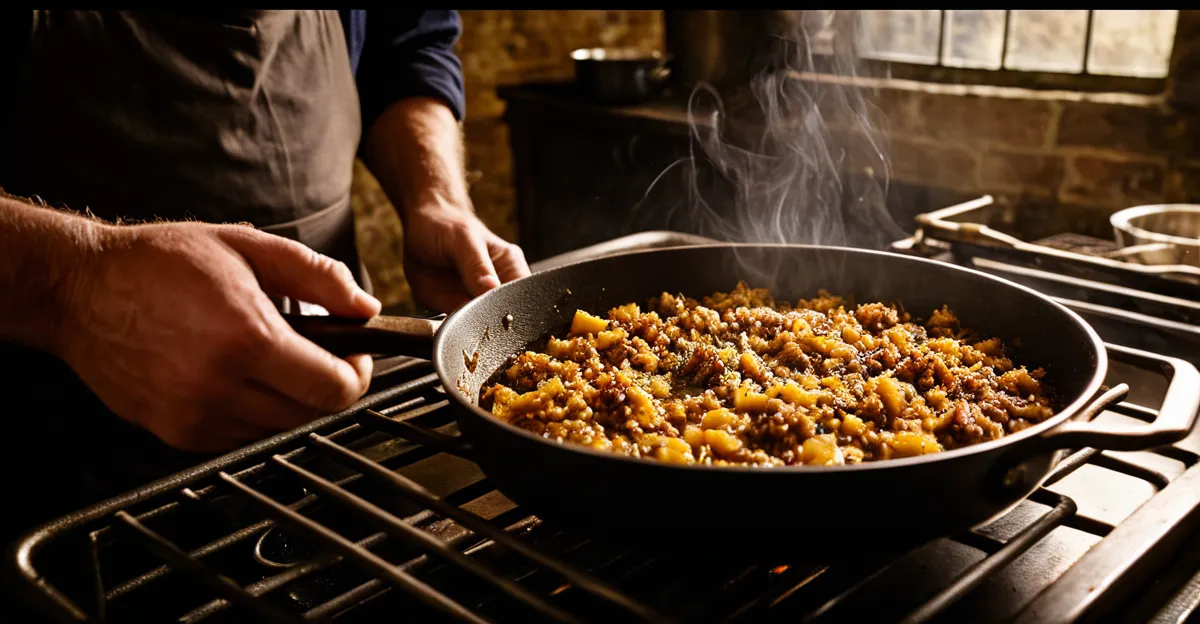Unique Regional Specialties Hidden in British Cuisine
Britain’s culinary landscape is rich with traditional UK dish secrets that often escape widespread recognition. From the rare British recipes of Cornwall’s Stargazy Pie to Wales’s humble Cawl, these lesser-known English foods highlight diverse local histories.
Each region offers dishes deeply tied to its environment and past. In Scotland, the ancient Black Pudding of Stornoway tells a story of resourcefulness, while Northern Ireland’s Bonfire bannocks link food to seasonal community rituals. Many recipes originated from farmers or fishermen, using readily available ingredients in innovative ways.
Also to discover : How Can UK Home Cooks Elevate Traditional Dishes with Modern Twists?
Today, these hidden gems are being rediscovered through food festivals and heritage projects committed to preserving local cuisine. Chefs and home cooks alike are reviving traditional UK dish secrets, showcasing them in modern ways while respecting their roots.
Understanding these rare British recipes offers insight into Britain’s evolving food identity, connecting people not just to dishes but to the cultural heritage that nurtured them. This deeper appreciation promotes preservation and innovation, keeping regional specialties alive for future generations.
Have you seen this : What are some innovative ways to use British herbs in cooking?
Forgotten Ingredients and How They Shaped UK Flavours
Traditional UK ingredients once abundant in kitchens have largely vanished from everyday cooking, yet they remain foundational to Britain’s culinary history. For example, seasonal foraged foods like wild garlic, nettles, and elderflowers were staples in many recipes. These forgotten UK cooking staples added unique flavours long before global imports reshaped diets.
Native herbs such as saltwort and sorrel influenced rustic dishes by contributing bright, tangy notes. Ancient grains like bere barley and spelt, once widespread across the UK, provided hearty bases for breads and porridges. Their resilience to local climates made them vital in sustaining communities.
Today, modern chefs and home cooks are consciously reviving these British heritage foods to reconnect with the authentic taste of traditional UK dishes. Cooking shows, farmers’ markets, and local foraging groups highlight these ingredients’ versatility and nutritional benefits. Their resurgence also fuels sustainable food trends, encouraging the use of wild and native resources.
By embracing such traditional UK ingredients, culinary heritage is not only preserved but evolved, inspiring dishes that honour the past while appealing to contemporary palates. This revival ensures that forgotten flavours continue to enrich the UK’s diverse food identity.
Time-Honoured Techniques Passed Down Through Generations
Traditional UK preparation techniques often stem from British cooking methods shaped by necessity and environment. Methods like open hearth cooking, pit baking, and salting reflect centuries of craftsmanship honed to preserve and enhance local ingredients’ flavours. For instance, open hearth cooking enabled slow roasting over wood fires, bringing out rich, smoky notes in meats and vegetables — a vital technique before modern ovens.
Families have long guarded these techniques, passing them down through oral traditions and hands-on teaching. This intergenerational sharing not only preserves the British culinary heritage but also embeds family identity into the dishes. Many households still recount stories around these methods, celebrating the skills of ancestors who perfected them.
Today, many cooks adapt these age-old techniques for modern kitchens without losing their essence. Salting, once essential for preservation, is now appreciated for the unique textures and tastes it imparts. Pit baking inspires slow-cooking appliances, allowing contemporary chefs to honour tradition while embracing convenience.
By valuing these time-honoured British cooking methods, the UK culinary landscape sustains a deep cultural continuity, ensuring beloved flavours and textures endure across generations.
Well-Guarded Family Recipes and Culinary Traditions
Family kitchens across the UK often harbour secret family recipes UK, treasured and fiercely protected through generations. These handed-down British recipes are more than cooking instructions; they embody familial identities and cultural legacies. For example, a Cornish pasty recipe might remain a closely held secret, passed from grandparent to grandchild only during special teaching moments. This careful transmission upholds the British culinary heritage, ensuring authenticity and continuity.
Why do families keep recipes secret? Often, the value lies in the recipe’s uniqueness and the pride in preserving a distinct flavour or technique unavailable elsewhere. Thus, these handed-down British recipes protect local identity against the homogenising effects of modern food culture.
Inter-generational sharing forms the heart of this tradition. Storytelling often accompanies each recipe, recounting historical contexts or amusing mishaps that enrich the cooking experience. This nurtures connection and pride, turning food preparation into a cherished ritual.
Many such secret family recipes UK focus on traditional UK dish secrets that may otherwise be overlooked. Their preservation strengthens community bonds and encourages the revival of lesser-known English foods, safeguarding cultural roots in an increasingly globalised culinary world.





